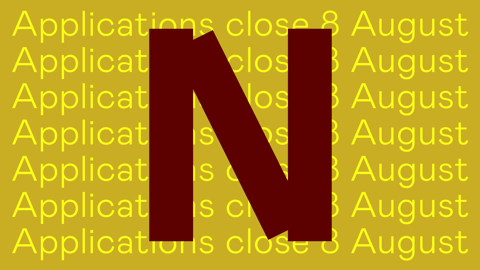How do I apply?
Applications for The Next Chapter are now closed. The successful recipients will be announced soon.
It is free to apply for The Next Chapter. All applications must be submitted online (if you require assistance or alternative arrangements, let us know).
There are five requirements that need to be met in your application.
- Tell us what you seek to get out of this program in 300 words or less, explaining how you’ll personally benefit from this opportunity. Have you encountered any specific ways in which the publishing industry was previously inaccessible to you?
- You need a one-page letter of support from someone who can vouch for your capacity and commitment to deliver the work.
- You need to provide a brief summary of your writing sample (maximum 200 words).
-
You need to provide a writing sample.
For fiction/non-fiction prose, 10,000 words of a book-length work-in-progress, with 10% leeway either way (i.e. a minimum of 9,000 and maximum of 11,000 words).
For poetry, 10–15 completed pages with a view to producing a book length work of poetry (i.e. over 50 pages), not a chapbook.
For graphic novels, 15–30 pages of a work-in-progress.
For hybrid works, or those not covered here (e.g. a verse novel, or a work that mixes prose and poetry) please contact us to discuss by calling reception or emailing inquiries to thenextchapter@wheelercentre.com
Most of the writing sample (i.e. 75%) must directly relate to the work that will be developed as part of the program. It must be supplied in PDF format using the following file naming convention: surname_firstinitial.pdf
-
If you wish to apply for the John Clarke or Malcolm Robertson Fellowships, please ensure to check the corresponding boxes on your application form.
The John Clarke Fellowship will be awarded to an emerging humour writer or satirist. Works must have an emphasis on humour and will be judged on the skill with which humour is incorporated to elevate the writing sample.
The Malcolm Robertson Fellowship will be awarded to an emerging poet.
All applicants who apply for these fellowship places will also be considered for the eight other general fellowship places.
Eligibility
Here’s what you need to know about whether you’re eligible to apply (or be nominated) for The Next Chapter. If you have any questions or require clarification for any of the advice provided here, you are welcome to call reception or email inquiries to thenextchapter@wheelercentre.com
The author must:
- Permanently reside in Australia, but does not have to be an Australian citizen. We encourage people who came to Australia as a refugee to apply.
- Be at least 18 years of age; and
- Not be a current staff or board member of the Wheeler Centre. Casual staff, volunteers, and staff of resident organisations are welcome to apply.
- Only enter one application per year for consideration.
Eligible works:
- Must be entirely the author’s original, own work;
- Must not have had more than 25% of the work previously published through one or multiple outlets or publications (excluding personal author blogs), including online, unless previously self-published (i.e. published independently at your own expense);
- Must not be already under contract with a publisher or signed with an agent for the work you wish to develop through the program;
- Must be presented in English (bilingual editions where one of the languages used is English are also eligible); and
- Must be a work of prose, poetry, fiction or non-fiction or graphic novel aimed at readers aged 13 years and above.
Please also refer to the Terms and Conditions of entry for further information on eligible works and/or authors.
Selection criteria
The Next Chapter celebrates writers who reflect the diversity of Australian identities and experiences. As such, grants in any given year are distributed amongst writers from a diversity of backgrounds.
Applications will be considered on the basis of:
Merit: the quality of the writing – including but not limited to the craft demonstrated in story and character development, innovation in form, and the sophistication of phrasing and lyricism.
Impact: the potential impact that the program would have on the applicant’s writing practice and career. This includes considering ways in which the publishing industry was previously inaccessible to the applicant.
Potential: the applicant’s potential success and/or impact as a professional writer in future.
Suitability: the applicant’s commitment to completing the project within the year.
Significance: the potential impact that the writing produced through the program may have in the wider community.
